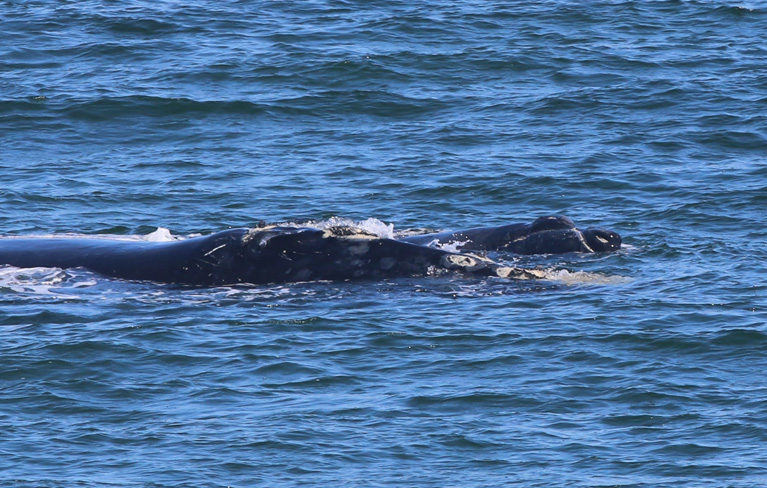
The plight of critically endangered North Atlantic right whales that visit our coast each winter just keeps getting worse, increasing the threat of extinction for the huge and charismatic marine mammals.
According to Julie Albert, whale conservation program coordinator for the Marine Resources Council, six right whales died in June alone and three more were found entangled in fishing gear – all in Canada’s Gulf of St. Lawrence. One of those victims was Clipper, a female who showed up in Sebastian Inlet in 2016 with her only calf and became something of a local celebrity. Albert said she died after being struck by a ship.
So far this year, Albert said, a total of eight whales have died while only seven have been born – bad news for a worldwide population estimated at only 400.
“Once again we’ve got the population declining and the year is only half over,” Albert told a rapt audience at Marine Resources Council headquarters in Palm Bay last week. “These eight deaths hit everyone kind of hard.”
Especially hard, Albert added, because four were females and two of those didn’t live long enough to give birth. She noted that three deaths and no births were recorded in 2018 – something that’s never happened before in a single calving season.
“Why aren’t these females giving birth?” she asked in frustration. “Maybe they’re not finding enough food. If we can keep them alive long enough to give birth, that’s half the battle.”
North Atlantic right whales are long-lived and typically take about 10 years to reach sexual maturity. Females have a gestation period of about a year. The animals can grow to more than 50 feet, feeding mainly on a type of plankton called copepods.
Albert said that in a portion of the Gulf of St. Lawrence where the whales were found dead this summer, ships were not being forced to slow down and fishing boats were deploying gear that entangles the animals – the two leading causes of death for right whales. Following the June fatalities, she said, the Canadian government expanded slow-speed zones, closed more fisheries, increased aerial surveillance patrols, and boosted fines against violators.
Albert said she needs more volunteer spotters to look for the whales as they migrate south along the Space and Treasure Coasts from Canada and New England to give birth this coming winter. But she also exhorted the audience to do some lobbying on the animals’ behalf.
Specifically, she urged local residents to contact their senators and Congress members to support the SAVE Right Whales Act (H.R. 1568) which would authorize $5 million annually to be spent over the next ten years on research and development of new equipment and techniques to prevent ship strikes and fishing gear entanglements. She also suggested lobbying the Canadian government to step up its efforts to protect the whales.
“People are wreaking havoc on this population,” Albert said. “We’re all kind of holding our breaths to see what’s going to happen this year.”



